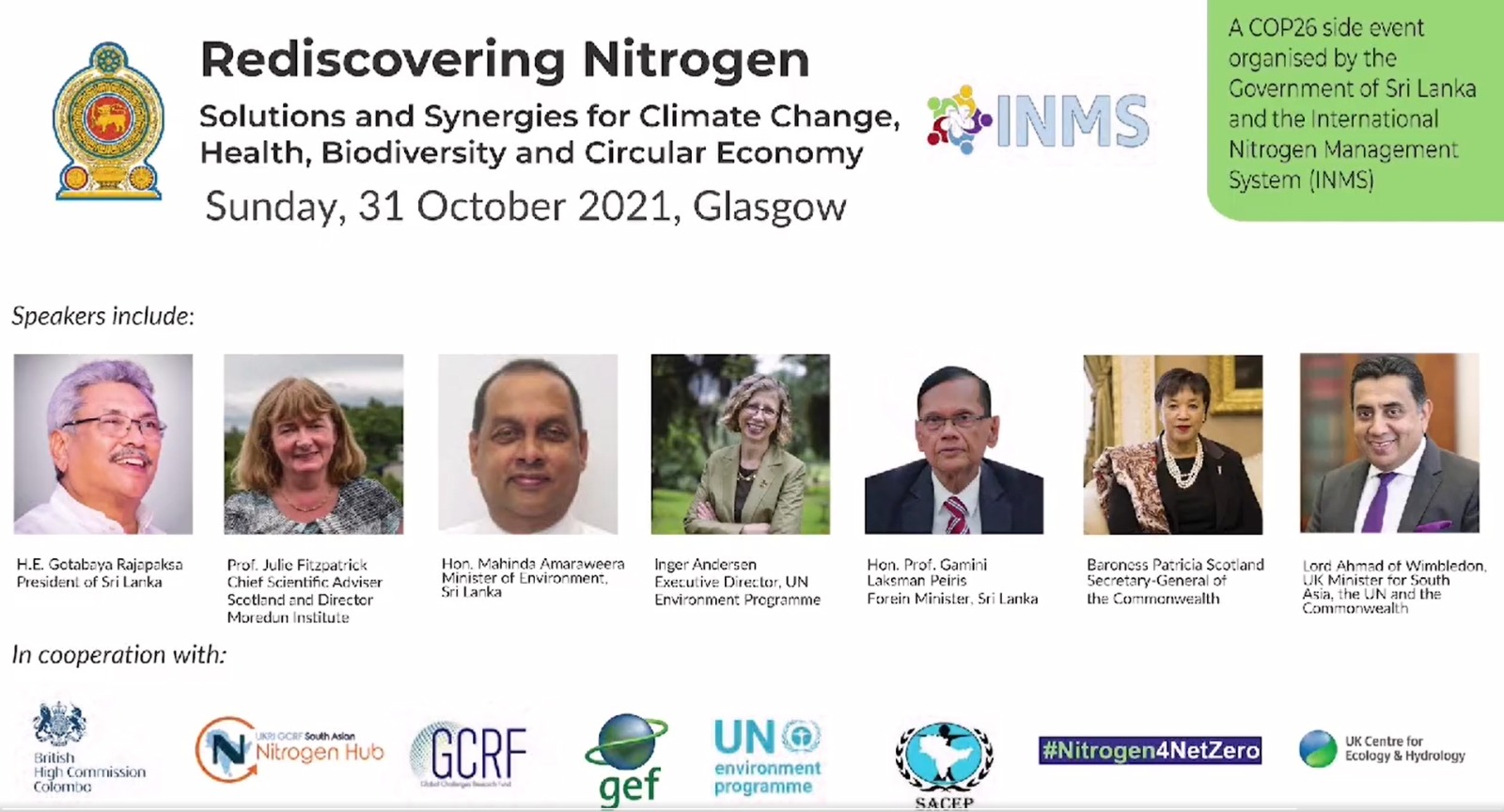
Sri Lanka’s war crimes accused president Gotabaya Rajapaksa is set to speak at a side event tomorrow during the 2021 United Nations Climate Change Conference, COP26, as Tamils from across the UK are gathering in Scotland to protest his appearance.
Rajapaksa is set to speak on a panel titled, "Rediscovering Nitrogen: Solutions and Synergies for Climate Change Health, Biodiversity and Circular Economy", an event reportedly organised by the British High Commission in Colombo in coordination with the Sri Lankan government.
The event comes amidst a high profile campaign by Scottish Tamil activists as Rajapaksa looks to make his first high profile public visit to the United Kingdom.
Adverts have been taken out in newspapers and websites, whilst projections were shone in landmarks across Scotland – including the Scottish Parliament Building.
Rajapaksa previously served as Sri Lanka’s defence secretary and oversaw a military campaign that saw hospitals shelled and tens of thousands of Tamils killed. He has repeatedly vowed not to prosecute those accused of war crimes, which includes senior military generals and his elder brother Mahinda Rajapaksa, who is currently Sri Lanka’s prime minister.
The panel tomorrow is chaired by Professor Mark Sutton, from the UK Centre for Ecology & Hydrology and includes speakers such as the UK Minister for South Asia, Lord Ahmad, and Sri Lanka's Foreign Minister, GL Peiris.
Other speakers include Julie Fitzpatrick, Chief Scientific Adviser for Scotland; Inger Andersen, Under-Secretary-General of the United Nations and Executive Director of the UN Environment Programme; Baroness Scotland, the Commonwealth Secretary-General; and Dr Masumur Rahman, Director General of the South Asia Co-operative Environment Programme.
Responding to the event, Alan Keenan, Senior Consultant on Sri Lanka at the International Crisis Group said,
"While Gotabaya presents himself as an environmental champion, his government's policies have in fact encouraged the destruction of precious forests and other natural resources by businesses with connections to the regime - and his crash course in organic farming has discredited the idea among farmers otherwise quite favourable to it".
He further added,
"It's essential to see the Sri Lankan government's sponsorship of the COP26 panel on nitrogen as part of their recently launched charm offensive with the UN and western governments, designed to prove they are good global citizens and to distract from the dangerously discriminatory and repressive policies they are pursuing at home and to undermine the UN Human Rights Council's calls for major reforms.
While action on the climate emergency is of the greatest urgency, it is a shame to see so many important organisations - including the Foreign Office, the Commonwealth, UNEP and UKRI - all putting their name to a clear example of politicised greenwashing. No lasting response to the worst effects of climate change can be built on the authoritarian and discriminatory policies pursued by the Rajapaksa government, and international bodies working to address the climate emergency should make this clear".
"The UK shouldn't help greenwash the oppressive regime of Sri Lanka," a Tamil activist from Scotland told Tamil Guardian.
Despite reaching out to Professor Sutton for comment regarding his participation in the event, the Tamil Guardian is yet to receive a response.
